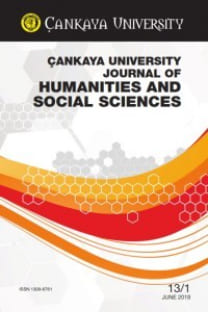Keeping the Door Open at Lausanne Conference: The U.S. Open Door Policy in the Near East during 1920’s
Birinci Dünya Savaşı’ ndan sonra Amerika Birleşik Devletleri Ortadoğu’da Açık Kapı politikası uyguladı. Türk kurtuluş mücadelesi veren liderler de bu politikanın beklenmedik savunucusu oldular. 1922 ve 1923 yıllarında Lozan Konferansı sürerken Ankara Hükûmeti Amerika’lı Chester grubuna Musul ve cevresindeki yeraltı kaynaklarını doksan-dokuz yıl kullanma imtiyazını verdi. Bu sayede Ankara Hükûmeti Musul üzerinde egemenlik hakkı kurma amacını güttü. Buna karşılık olarak da Amerikan Hükûmeti oluşmakta olan yeni Türkiye’nin tam bağımsızlık talebini Lozan Konferansı’ nda destekledi. Yeni Türk hükümeti Amerika’nın Acık Kapı politikasını Avrupa emperyalizminden daha hazmedilebilir buldu. Bu yüzden Amerika’nın Ortadoğu Açık Kapı politikası bölgede zor kullanarak değil, tam tersine Avrupa emperyalizminden çekinen Ankara Hükûmeti’nin isteği ve desteğiyle uygulandı. Ankara Hükûmeti tam siyasal bağımsızlık kazanmak uğruna Amerika’ya ekonomik imtiyaz vermeye gönüllüydü.
Keeping the Door Open at Lausanne Conference: The U.S. Open Door Policy in the Near East during 1920\'s
The United States vigorously promoted an Open Door policy in the Near East in the aftermath of World War I. The Turkish nationalists who were fighting for independence became an unlikely ally of this policy. During the Lausanne Conference in 1922 and 1923 the nationalist government in Ankara granted the Chester concessions which permitted the United States to exploit the mineral resources in and around Mosul. This way the new Turkish state would maintain nominal sovereignty while the United States controlled the oil reserves for ninety-nine years. In return, the United States supported the Turkish nationalists’ demand for unconditional independence at the Conference. Turkish nationalists considered the Open Door policy benign and preferred it to European imperialism. Thus, U.S. infiltration into the Near East did not come as an imposition of the Open Door policy. To the contrary, it was encouraged by the Turkish nationalists who considered American entrepreneurs more palatable than European imperialists. Turkish nationalists valued political independence far greater than commercial interests that would be difficult to exploit and therefore were willing to trade economic limitations to their sovereignty.
